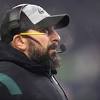Tennis parents: a help or a hindrance in the making of a champion?


Coming from a family with a background in the sport has been of benefit to some, but other players believe it creates barriers
When it comes to producing a tennis champion, it is widely agreed that there is no magic formula. You can have all the money in the world, the best facilities, the best coaches, the most talent and still, there is no guarantee that you will make it on to the professional tour, let alone to reach the top of the sport.
The only thing that is a constant is the presence of parents. And that’s not always a good thing. Juggling being a mentor, coach and unpaid taxi driver brings its own stress but for every Judy Murray, who helped to guide her sons – Andy and Jamie – to the world No 1 ranking in singles and doubles respectively and who ferried a legion of young hopefuls around the country from tournament to tournament, there is a Jim Pierce, who once called out “Mary, kill the bitch”, when his daughter was playing in a junior event, or a Damir Dokic, the father of Jelena, who was banned from the tour for his aggressive behaviour.
Pierce went on to win two grand slam titles, the Australian and French Opens and though tennis is littered with difficult, occasionally abusive, parents, it is also often suggested that having parents who played the game themselves, to a good level, is an advantage for a young player trying to make it.
Of the four finalists here this year, only Carlos Alcaraz could be said to have come from a tennis background, his father having wanted to be a professional and ended up running the academy where his son learned to play.
Other players were truly born into tennis; Sebastian Korda’s parents were professionals – Petr Korda won the Australian Open in 1998 – Alexander Zverev’s parents were players in the former Soviet Union, as was Denis Shapovalov’s mother, while Tracy Austin’s son, Brandon Holt, is on the ATP Tour.
Other top players have sporting parents. The mother of Svetlana Kuznetsova, who won the French Open and US Open, won six Olympic gold medals in cycling; Stefanos Tsitsipas’s grandfather was a footballer in the Soviet Union and Rafael Nadal’s uncle, Miguel Ángel Nadal, played football for Barcelona and Spain.

Marion Bartoli, the champion here in 2013, did not come from a tennis family. Her mother, Sophie, was a nurse and her father, Walter, was a doctor. With little experience, Bartoli and her father made it up as they went along but Bartoli believes that not having “tennis parents” helped her.
after newsletter promotion
“What was crazy when I look back on it, is no one in my team, which was basically my dad and myself, had done it before,” she says. “Because we had probably lack of knowledge, you have also [fewer] barriers. When you have too much knowledge, you almost think well, realistically, it is just not going to work.
“Probably, if my dad had a better tennis background or was a tennis coach himself, he would have told me there is just no chance. And maybe we wouldn’t go and give it a shot. So I think that was definitely my strength. I felt like with work, you can handle anything.
“You can see how tough the road is and how long the road is,” she says. “I put myself in the shoes of my dad with me when I was younger. I was like, how in the world we thought we could make it, with just absolutely zero resources whatsoever?
“But the beauty of just going into the unknown without a tennis background is you don’t put any limitations on yourself, when maybe if I had all the knowledge, I would be like, there’s absolutely no chance you can do that. So in a way, being probably a little bit more candid and just open-minded that gave us also, you can say a bit of craziness, but also the desire to just keep on going until wherever the end is.”
The women’s world No 4, Jessica Pegula, said her parents were too involved, in general, even if they were not from a tennis background. Her father, Terry, and mother, Kim, worked in business and are the owners of the Buffalo Bills NFL team. Pegula said she still “butts heads” with her father on tennis matters and said it might have been better had they had more experience in the sport.
“I would think that if they were players, that would be helpful because they know what you’re going through,” she says. “There are people that I know, their daughters are younger, playing tennis, they’re freaking out. I’m like, relax, she’s 12, she’s good, she’ll be fine. Maybe that mentality would probably help, as long as they were not putting too much pressure on the person.”
- Wimbledon 2023
- The Observer
- Wimbledon
- Tennis
- features


 United States
United States Argentina
Argentina  Australia
Australia  Austria
Austria  Brazil
Brazil  Canada
Canada  Chile
Chile  Czechia
Czechia  France
France  Germany
Germany  Greece
Greece  Italy
Italy  Mexico
Mexico  New Zealand
New Zealand  Nigeria
Nigeria  Norway
Norway  Poland
Poland  Portugal
Portugal  Sweden
Sweden  Switzerland
Switzerland  United Kingdom
United Kingdom 

























